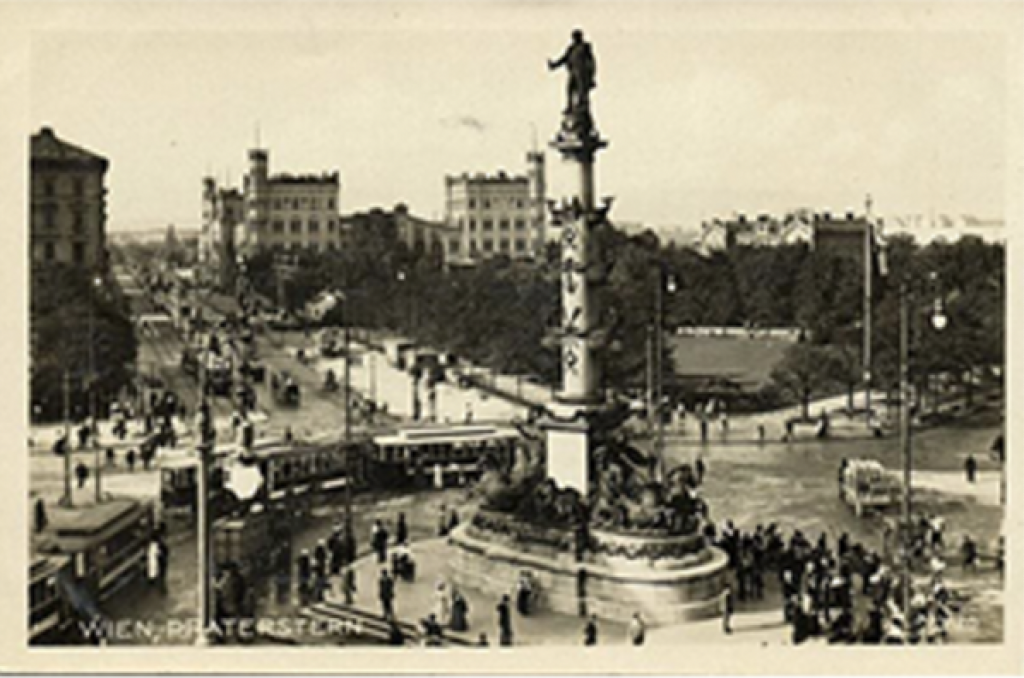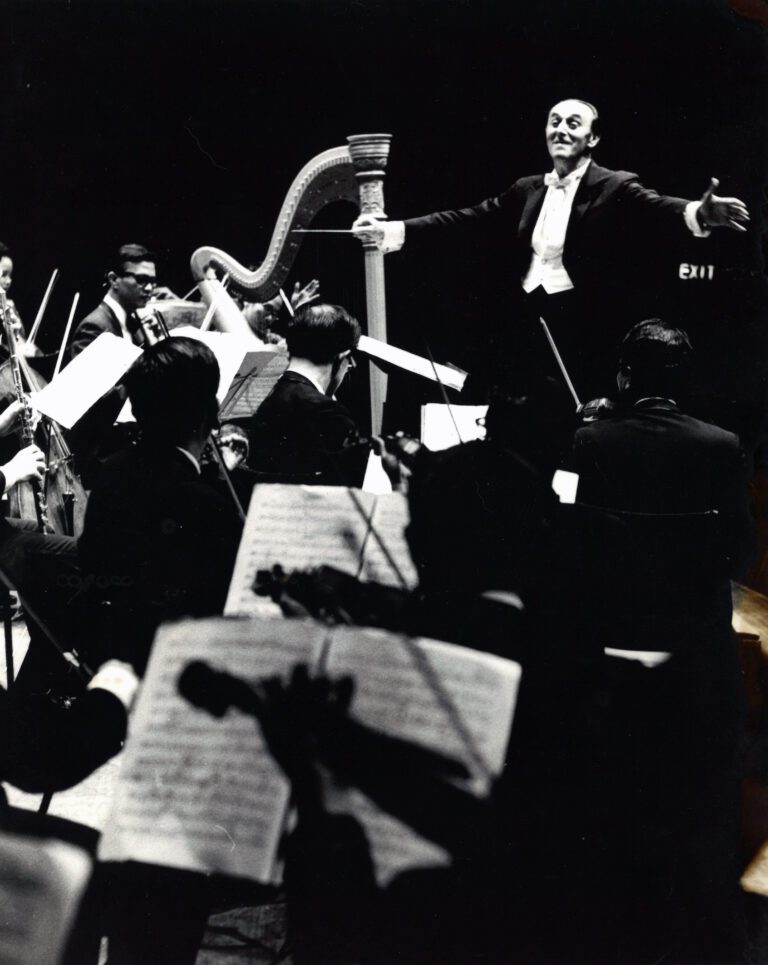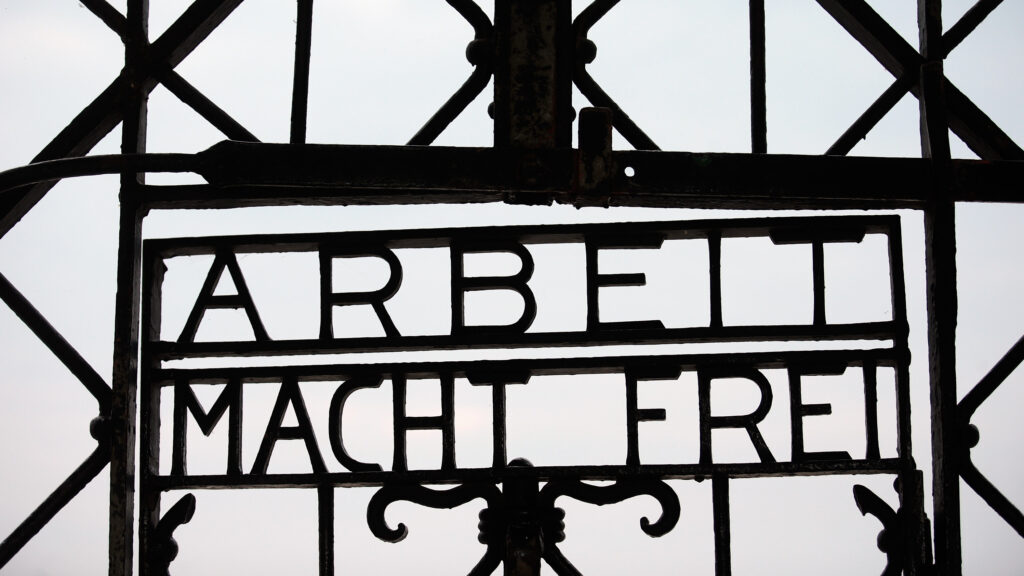
Beyond the Notes presents
The Final Waltz
Wednesday, November 9, 2022, 12:00 PM
Charles Library Event Space
Performers:
Daniel Neer, baritone
Marta Zaliznyak ’21, soprano
Ariana Grace ’24, soprano
Gabriel Rebolla, piano
Light refreshments served. Boyer recital credit given.
All programs are free and open to all, and registration is encouraged.
In remembrance of the 84th anniversary of Kristallnacht–“the night of broken glass” when Nazi military carried out violent, anti-Jewish attacks across Germany, Austria, and the Sutedenland (former region of Czechslovakia) throughout November 9-10, 1938–Boyer College of Music community members will perform a program of Viennese Operetta, a musical tradition that would be devastated by the advent of Nazism. This program includes works, stories, and personal accounts of composers of this time, both Jewish and non-Jewish.

Among these is Austrian composer and arts activist Herbert Zipper, who spent a year in Dachau concentration camp, and survived. Zipper was born in Austria in 1904 to a Jewish family whose roots ran deep in music and their faith–Herbert was the grandson of both a cantor and a Rabbi. The composer went on to study at the Viennese Academy of Music from 1923 to 1928 (Music and the Holocaust, n.d.), which led to his migration to Germany in 1930 for a teaching appointment during the early rise of the Nazi party. Just three years later, he returned to Austria to escape Nazism only to find antisemitism on the rise on home turf as well. Nevertheless, he continued his career in underground theaters as the Austrian government grew stricter. Upon the Anschluss, the annexation of Austria in March 1938, he and his brother were arrested and sent to Dachau.

During his imprisonment, Zipper wrote “Dachau Song,” intended for secretive performance among fellow musicians at Dachau, including playwright Jura Soyfer, the Lied’s (song’s) lyricist. The song was penned in response to the phrase inscribed at Dachau’s, and many other concentration camps’, gates: “Arbeit Macht Frei” (colloquially translated, “Work makes you free”). Friends and collaborators Zipper and Soyfer viewed the practice of their intellect as a retention of dignity against the Nazi-imposed humiliation. They shared this practice with their peers in challenging them to perform the piece, which was intentionally difficult both rhythmically and melodically, and momentarily escape from their imprisonment.
Shortly after, Soyfer and the Zippers were transferred to Buchenwald due to overcrowding in Dachau, where Soyfer would pass at the age of 26 due to the typhoid epidemic. At the appeal of their family, the Zipper brothers were released from Buchenwald in February 1939. Zipper returned to his hometown of Vienna briefly before fleeing to Paris to reunite with his family, where he would be detained once again. By May, Herbert was invited to direct the Manila Symphony Orchestra, fleeing once again to the Philippines where he would freely lead the ensemble until Japanese forces eventually arrested Zipper on account of his American relations in Manila. Upon his release, Zipper was forced to lead an orchestra for Japanese propagandist purposes, but instead used this time to join an underground resistance in alliance with his American peers, aiding US forces in their allied attack with the Philippines against Japan in the Battle of Manila. Victorious, Zipper worked towards the revival of the Manila Symphony Orchestra, performing Beethoven’s 3rd Symphony, Eroica in May 1945.
After World War II, Zipper once more reunited with his family who had immigrated to the United States, where he stayed until his death in 1997. Zipper spent the next 50 years teaching music in community arts schools across the nation and conducting the Brooklyn Symphony Orchestra. The Austrian musician is remembered for his resilient activism in the arts, even in the face of Nazi forces.
We hope you will join us and remember Herbert Zipper and the music of other Holocaust-era composers in our next concert on Wednesday, November 9 for our Beyond the Notes concert series.
For more information see:
Colburn School. 2022. “Herbert Zipper, Champion of Community Music.” Last modified August 6, 2022. https://www.colburnschool.edu/herbert-zipper-champion-of-community-music/.
United States Holocaust Memorial Museum. n.d. “Concentration Camp Songs: Dachau Song (Dachau Lied).” Songs of the ghettos, concentration camps, and World War II partisan outposts. Accessed November 1, 2022. https://www.ushmm.org/collections/the-museums-collections/collections-highlights/music-of-the-holocaust-highlights-from-the-collection/music-of-the-holocaust/dachau-song.
Music and the Holocaust. n.d. “Dachau: Herbert Zipper.” The Early Concentration Camps. Accessed November 1, 2022. https://holocaustmusic.ort.org/places/camps/music-early-camps/dachau/zipperherbert/.
⸻. n.d. “Dachau: Jura Soyfer.” The Early Concentration Camps. Accessed November 1, 2022. http://holocaustmusic.ort.org/places/camps/music-early-camps/dachau/soyferjura/.
Kaitlyn Canneto is a first-year masters student in Music History at Boyer College of Music and Dance. She recently received her B.A. in Music (saxophone concentration, minors in Spanish and Political Science) from The College of New Jersey in May 2022. Her research interests include Latin American contemporary studies, gender and sexuality, jazz, and popular music.